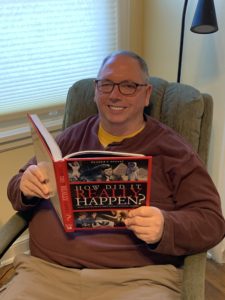
About ten years ago, at a social gathering, I witnessed two guys do a back and forth spouting of random “facts” for the purpose, I think, of showing they were smart. I thought it was funny because most of their “facts” were in the category of things that sounded true but were in fact not true.
For the record, no religion on earth has the majority of people on earth as believers. NASA says you really cannot see the Great Wall of China from space. More people speak Spanish than English as a native language. Studies do not show vitamin C is effective in preventing colds.
I started a post about the “two guys in the living room” story. My idea was knowing a bunch of “facts” is no longer indicative of being “smart” because facts are so easily found using our devices. I spent many frustrating hours trying and failing to write that post. It seemed so straight forward but it was not. What stopped me was defining what it means to be smart.
What does it mean to say someone is smart or smarter? I ended up writing on a different topic however, the question of what it means to be smart, was haunting me. For much of my life, being smart was a part of my self-identity. Certainly, there is a long list of not smart things credited to me which makes being humble easy. But I thought I was reasonably smart. It was time to research.
Turns out, being smart, as such, is not a real thing. Source after source explained what we know or don’t know is much more complicated than a simple label of being smart or dumb.
Knowing stuff involves the process of learning. Nobody is born knowing how to knit or read or write or balance a bank account or plan a trip to the moon or much of anything. Learning requires time, effort, experience, contemplation, and the like. Unless you take the time and expend the effort to actually learn we as individuals, will not know.
Everyone learns stuff relevant to their own lives and interests. We just do. It is part of being human. What we learn depends on our life experiences, training, focus, circumstances, expectations, and the like. Some of us seem to have certain innate abilities which can make it easier to learn some types of things. However, even with such abilities knowing still requires learning which requires effort and time.
The young man who fixed my furnace knows more about furnaces and how to fix them than I do. I am willing to bet he knows more than I do about many things. On the other hand, maybe I know more about some stuff than he does. The people who study such stuff will tell you it is absurd to think of one person as smarter than another. We are all smart in our own way even though we may not be smart about the same things.
Everyone’s life experience is different. Our perspectives are different. The furnace repair person is looking at life from the perspective of a 23-year old just starting his career. I, on the other hand, am looking at life from the perspective of a person who cares much more about the room being warm than how to replace a furnace controller.
My high school grades were terrible. Based on that evidence, I had no future in college. That said, from the time I was 10 or 12 years old I had been told several times by various people that I was smart. A couple of those people had Ph.D.’s. Most people who knew me assumed I was going to college.
I was accepted into college because my SAT test scores were good. I do not remember my actual SAT score although I do remember my SAT score was not stratospheric, it was good enough to get me into the University of Minnesota.
A person is not smart because they get a high score on tests like the SAT, IQ or the Armed Forces Qualification Exam. Tests like these seem to basically measure the same thing because scores on one tend to be consistent with the others. They are said to measure the ability to reason and to learn, however, there is a bunch of research that challenges exactly what is being measured. That said, the use of such tests is institutionally entrenched and likely will continue to be used for many years to come, no matter what they actually measure.
There is a difference between what we know and our ability to learn. Learning takes effort. Our relative ability to learn is more or less something we are born with. It may be easier for some to learn but everyone has an ability to learn. That said, knowing more about a topic means only you know more about the topic. It does not make us smarter than other people.
In today’s connected world, informaiton is relatively easy to find. A person with a very high IQ can look up information on almost any topic but, so can most anyone else. It might be easier for the person with a high IQ to understand because they can learn more efficiently but with effort, pretty much we all are capable of understanding most things.
I wonder how often what I say is wrong or misguided. I am sticking with the belief that I am smart but I am coming around to the fact that most everyone else is smart also.
The closer you look the more you see.
www.scaleandperception.com
